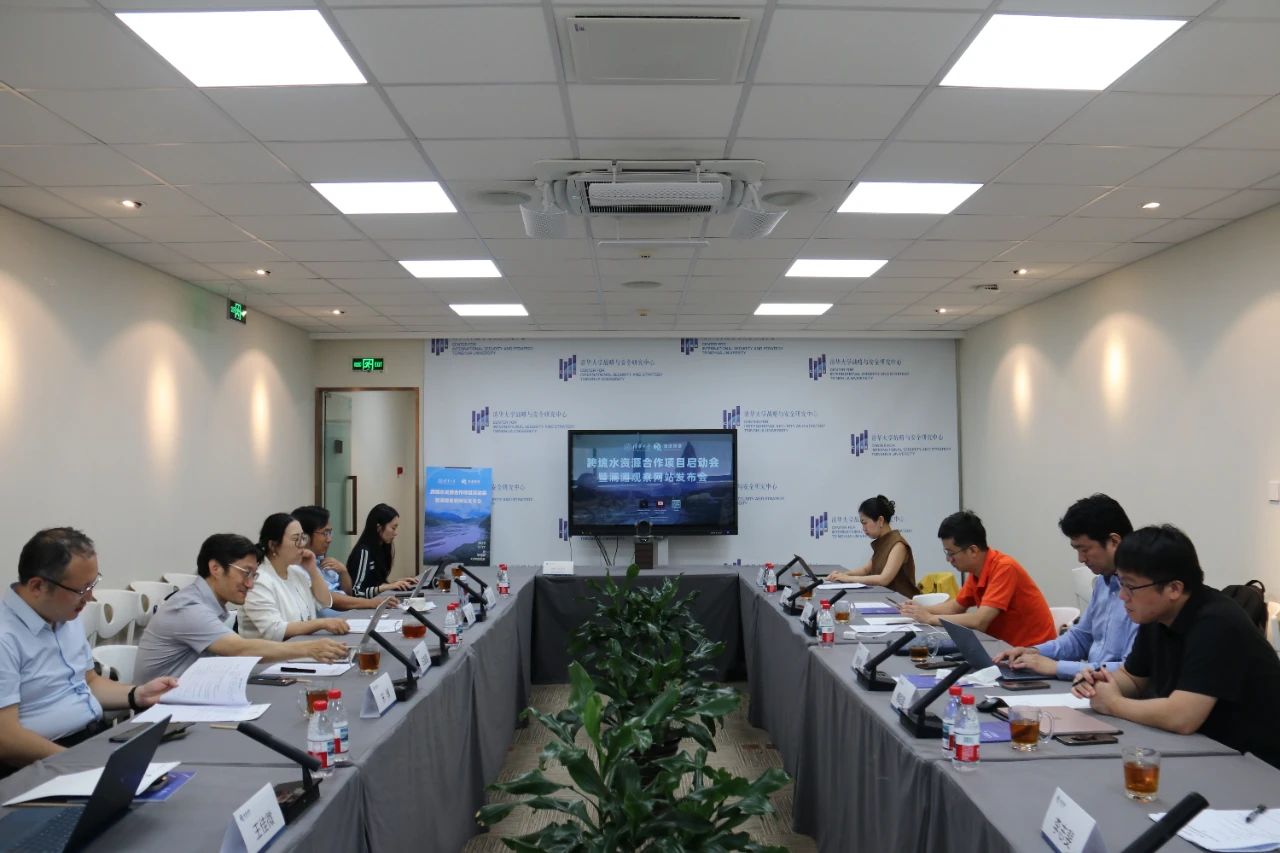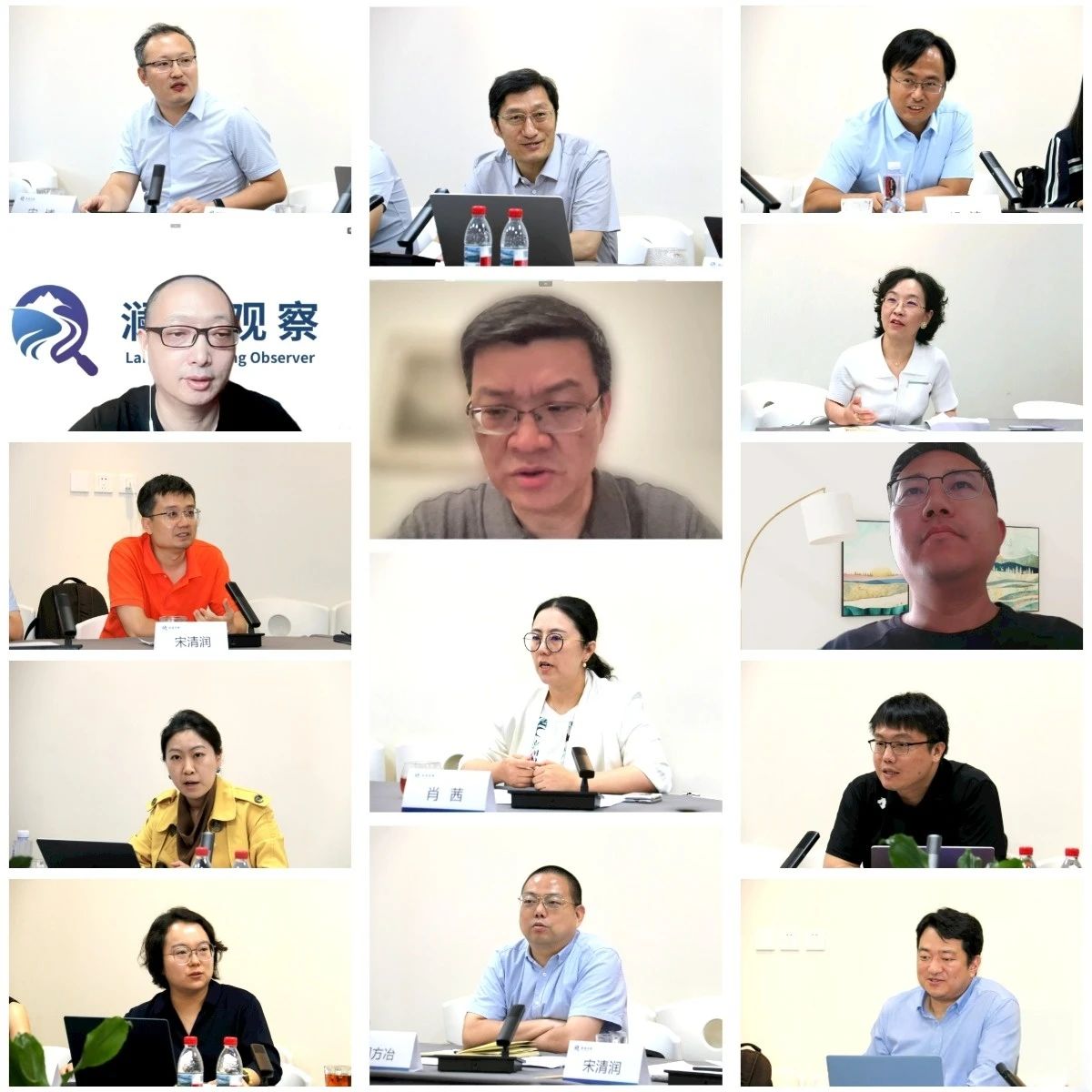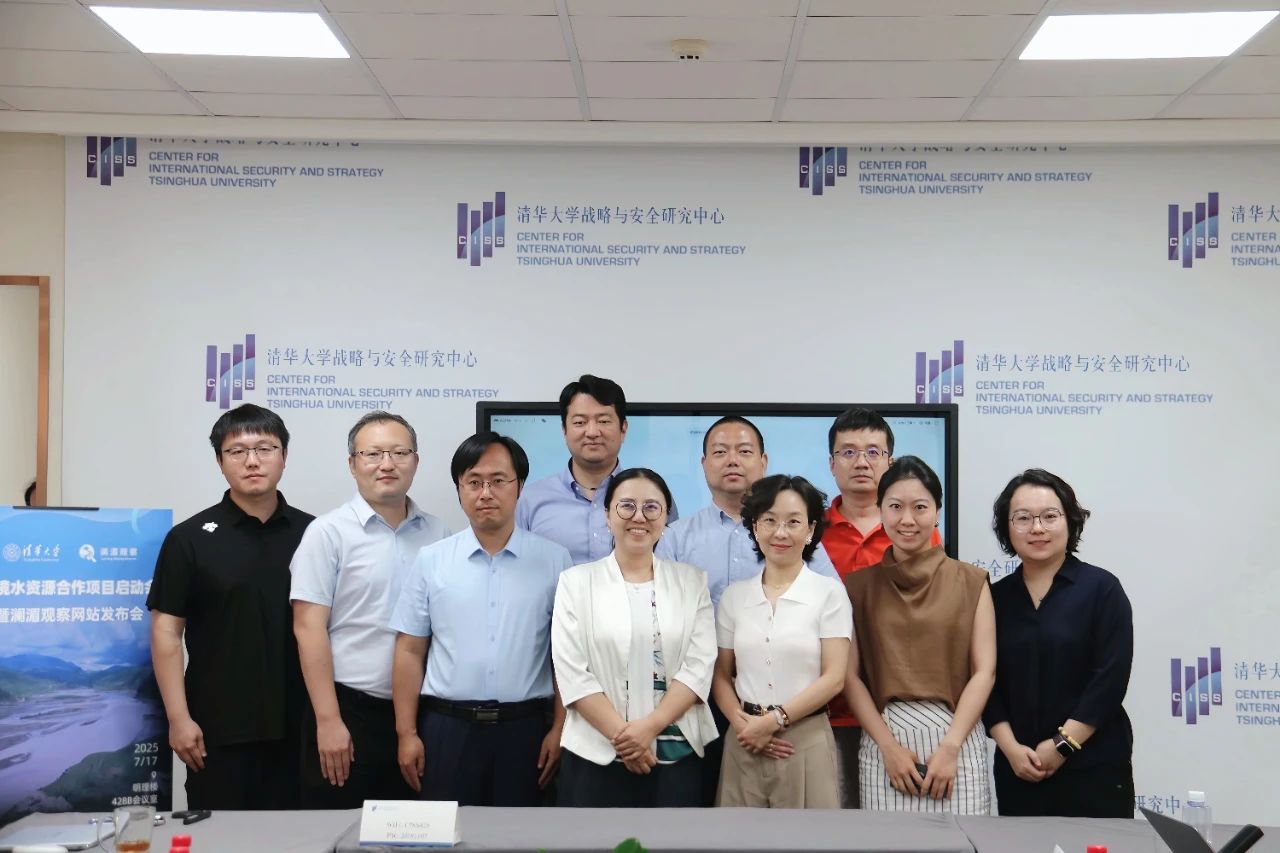On July 17, 2025, the "Kick-off Meeting for the Transboundary Water Resources Cooperation Project and Launch Ceremony of the Lancang-Mekong Watch Website," hosted by the Center for International Security and Strategy (CISS) at Tsinghua University, was successfully held in Beijing, marking the official launch of the Lancang-Mekong Watch platform. The event brought together numerous experts and scholars in the field to focus on the utilization and cooperation of transboundary water resources. A total of 16 experts from institutions including Tsinghua University, Peking University, the National University of Defense Technology, the Chinese Academy of Social Sciences, Beijing Foreign Studies University, Hohai University, East China Normal University, Shanghai University of Political Science and Law, and Global Times participated in the event both online and offline. Lancang-Mekong Watch aims to provide an important platform to promote fairness, transparency, and professionalism in water governance, and to advance the sustainable development of global water resources.

The meeting began with opening remarks from Xiao Qian, Deputy Director of CISS. She first expressed her gratitude to the experts supporting the project's research team, and then elaborated on the project’s background, the current challenges and opportunities facing transboundary water resources, as well as the necessity and urgency of carrying out this work.
Following this, participating experts engaged in in-depth discussions on topics including the current situation and challenges of global transboundary water resource utilization, the positioning and development direction of the platform, and key research priorities. Experts noted that transboundary water resource utilization is not only a significant issue for countries in the Lancang-Mekong region but also a global concern and hotspot. From the perspectives of academic research and international communication, it represents an emerging field with great potential. They emphasized the need to promote deep integration of interdisciplinary research and cutting-edge technologies, and to advance the platform’s content development, publicity network building, database construction, and transformation of research outputs. Moreover, they stressed the urgency of addressing transboundary water cooperation and sustainable development. To this end, Lancang-Mekong Watch should maintain high standards, highlight strong academic rigor and solid data support, and—guided by the vision of a community with a shared future—ground its work in facts and evidence to write a new chapter in the field. Participants unanimously expressed their hope to leverage the platform to carry out multidisciplinary research and exchanges, joint studies with international peers, and a series of international seminars.

In her concluding remarks, Xiao Qian stated that the experts' insightful discussions had laid a solid foundation and injected new momentum into the project's research and practice. Going forward, CISS will use the Lancang-Mekong Watch platform as a key vehicle to further strengthen regular and institutionalized communication among scholars, deepen joint research and cooperation, continue advancing database development, and expand the scope and depth of exchanges with relevant institutions at home and abroad. She expressed confidence that, with joint efforts from all sides, Lancang-Mekong Watch will grow into an authoritative and influential think tank platform in the field, working together with partners to contribute more to global transboundary water resources cooperation and sustainable development.

